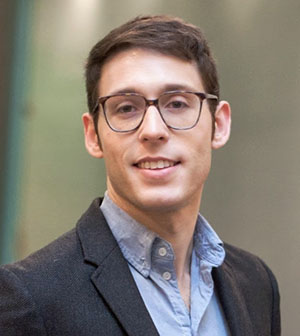Jon Freeman, 27, Psychology
When we see someone new, we form a snap judgment. Automatically, our brains categorize and stereotype. Jon Freeman, who directs the Social Cognitive and Neural Sciences Lab at Dartmouth and is an assistant psychology professor there, wants to know how this happens.
“My work examines how we perceive other people through facial, vocal, and bodily cues,” Freeman says, “as well as how those perceptions are shaped by the larger social context.”
(Photo: Jon Freeman)

One of his many studies found that a person’s clothes can affect how we perceive his or her ethnicity. Another proved that if you know something about someone before meeting in person, you use a different part of your brain to process his or her appearance when you finally do come face to face. Freeman has also developed a computational theory about why the brain can make such speedy assessments—however inaccurate—of other people. The implications, perhaps, include developing therapies for those who struggle with processing facial cues.
“He’s considered by higher-ups here to be a future rock star in brain and behavioral sciences,” says John Cramer, a Dartmouth spokesperson. At 27, Freeman has published more than 35 peer-reviewed papers, and he’s won prestigious awards from the National Institutes of Health, the National Science Foundation, and the American Psychological Association.
In high school, Freeman was already attracted to psychology. “I couldn’t get away from wondering what’s happening at the biological level that may inform the psychological processes.” At New York University, he took a cognitive neuroscience class and fell in love. “This was exactly the bridge between levels of analysis that I was waiting for, and I then got involved in several labs’ research.” He went on to get his Ph.D. in psychology from Tufts.
When Freeman gives advice to aspiring psychology researchers, he says, “Think broadly, read widely, and really engage with the work outside your immediate research area. Some of the most exciting discoveries and research developments arise from integrating work outside one’s home discipline.”
Freeman’s intellectual hero is Alan Turing, best known as the father of computer science. “But he also had important influences in the development of cognitive science and psychology,” Freeman points out. “His insights were partly fueled by the death of his young love whose mind he wanted to understand as possibly ‘living on’ in the form of a computational system, leading him to ask how a machine could ever be like a mind.”
For his part, Freeman developed software, called MouseTracker, designed to pick up on subtle biases based on how people use a computer mouse. It’s free, and it’s used by more than 1,000 researchers worldwide.
“Being able to shed light on the mechanisms that underlie human experience and then share that knowledge with the research community and rest of the world keeps me going,” Freeman says. “It’s usually all quite a slow and intensive process, but reaching those moments of discovery are completely worth it.”
See our complete 2014 list of the 30 top thinkers under 30 here.





